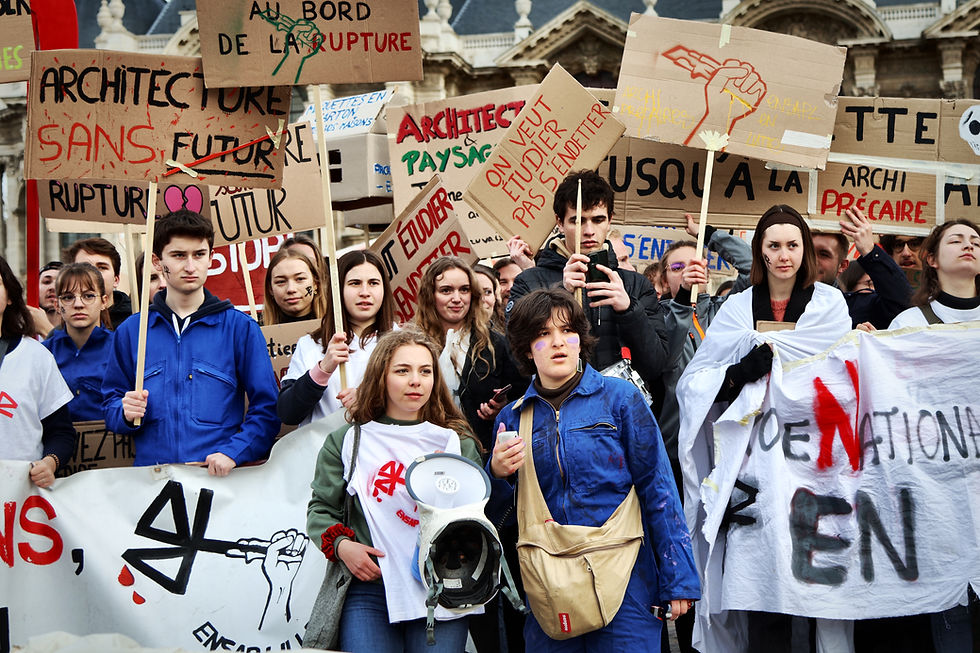How has the pandemic impacted homeless people?
- thaismoreau
- 11 mars 2021
- 3 min de lecture
Dernière mise à jour : 28 févr. 2024
(article produced when studying journalism at Edinburgh Napier University)
Since the pandemic has started and the world is in crisis, many people have been struggling, financially speaking, and socially speaking.
The virus separates us from each other but for homeless people who are already apart from society, how do they cope with the threat of a virus that kills millions of people?
Even if the contaminations of homeless people have not been the highest because they live outside and they are generally alone, how do they get care and where do they quarantine if necessary? What about the shelters? Are they able to welcome homeless people with distancing?
“A blanket for winter” (“Une Couverture Pour l’Hiver”/ UCPH in French) is a Parisian humanitarian association founded in 2015 which leads actions to help homeless people. These actions are various, from weekly feeding and patrols, to collecting clothes, hygiene products and raising money. Moreover, they organise awareness-raising actions to destroy clichés that people have on homeless people. Today there are about 300 members in the association, mostly students.
I had the chance to interview Sara Croisier, the general secretary of the association. She testified of the impact of the pandemic on homeless people.
Homeless people are particularly at risk from the virus. They have poor nutrition, sleep deprivation and hygiene issues which make them more vulnerable and weaker to face the Covid 19. As a reminder, the life expectancy of homeless people is 47. Thus, they must be protected against contaminations.
During such a pandemic that slows down the whole world, associations like “UCPH” are vital for homeless people to survive, get food, and have social contacts. During the first lockdown, like everybody else, Sara and her teammates did not know how to apprehend the virus and adapt to the situation. “But thanks to a better organisation and to specific authorizations for the volunteers, we are now continuing the feeding and patrols despite the lockdown or the curfew!" said Sara.
She also explained to me that getting food is a major issue for homeless people: “It is more difficult for these people to feed themselves because the streets are empty as a result of the lockdown and they can no longer live on begging for money.” She added that food banks struggle to respond to the strong demand “which considerably reduced the supply of food products”. Part of this issue is also to find somewhere to wash and to go to the toilet because all restaurants and public toilets are closed.
Another significant problem is the night shelters. It only takes one contamination and they immediately shut down. Hence, places such as hotels and gyms urgently opened during lockdown for homeless people, “however, every time the peak of the pandemic subsides, these centres close again” according to Sara.
Besides, a phenomenon has been observed due to the pandemic: there is a “new category” of homeless people. As a matter of fact many restaurants, cinemas, clubs, have closed perpetually, leaving people jobless. Rising rents and domestic violence have contributed to an increase in homelessness in 2020: "You do come across people who have lost their jobs in this health crisis that has become an economic crisis”, underlines Sara.
I finally asked her if there was more or less solidarity from people because of the fear of catching the virus? “Some have noted an increase in solidarity on the part of passers-by or associations.”
When undertaking their actions, the “UCPH” is a real support for homeless people because they take the time to discuss and meet the person. The opinion of homeless people on this pandemic varies: “There are conspiracy theorists among the homeless, some of whom believe that this pandemic is the result of states seeking to control their population and to enrich themselves through the development of a new trade (masks, hand sanitizers, new consumption linked to lockdown, etc)”. It underlines how much they feel isolated and not included in society: they feel forgotten.
Sara confided during a significant encounter: "A woman told me she had become ultra-sensitive to noise following the first lockdown, when there was no one on the streets”.
To conclude, homeless people are the first ones to be impacted by the pandemic. Associations like “Une Couverture Pour l’Hiver” are essential to help them.
I was really impressed by this dynamic association. I admire those students willing to help homeless people get integrated in our society.
Now we could wonder how homeless people are going to get vaccinated against the virus. How is it going to be organised in an equal way?

“Une Couverture Pour l’Hiver”:
Facebook: https://www.facebook.com/unecouverture/




Commentaires